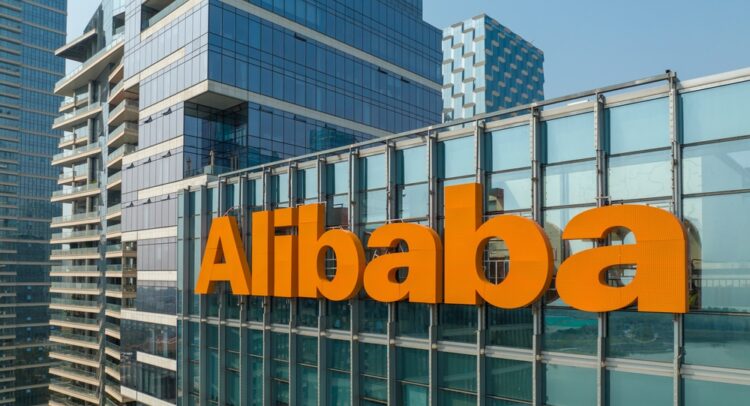The U.S.-listed shares of Chinese tech giant Alibaba (NYSE:BABA) have declined 5% so far in 2024 and more than 15% in the past year. The company’s underwhelming performance amid intense competition, regulatory crackdown, and the growing tensions between the U.S. and China have impacted investor sentiment. Nonetheless, analysts are patiently awaiting a turnaround in the e-commerce and cloud computing company, with the average price target and Wall Street’s consensus rating indicating a possible rebound in the shares in the months ahead.
Recap of Alibaba’s Recent Results
Alibaba has been reporting disappointing performance in recent quarters, as multiple headwinds, including macro challenges in China, are dragging down its results. Moreover, the company is losing ground to competitors like Temu-owner PDD Holdings (NASDAQ:PDD) and Tik-Tok owner ByteDance, which are attracting customers with their low-price offerings.
Last month, Alibaba reported mixed results for the fourth quarter of Fiscal 2024. Revenue grew 7% to RMB221.9 billion and exceeded expectations. However, the company’s net income (attributable to ordinary shareholders) fell 86% to RMB3.3 billion, mainly due to losses related to investments in publicly traded companies.
On the positive side, the company’s core e-commerce business showed improvement despite persistent challenges. Revenue from the Taobao and Tmall division grew 4% year-over-year to RMB93.2 billion, marking some acceleration compared to the 2% growth in the Fiscal third quarter. Moreover, revenue from Alibaba’s international commerce business (Alibaba International Digital Commerce Group or AIDC) jumped 45% to RMB27.4 billion, while revenue from the cloud computing unit increased 3% to RMB25.6 billion.
Alibaba’s Efforts to Revive Its Business
Alibaba is taking major steps to revive its business. Last year, the company announced its decision to split its business into six units and explore the possibility of IPOs (initial public offerings) for these units. However, the company withdrew its plans for the listing of its cloud unit, citing the U.S. chip restrictions. Further, BABA called off the IPO of its Cainiao logistics unit due to challenging market conditions.
An uneven recovery in the Chinese economy is making Alibaba’s turnaround difficult. Nonetheless, the company is focused on overhauling its e-commerce and cloud divisions. It is enhancing services and offering products at competitive prices to fight competition and attract customers.
Plus, Alibaba is investing in its international commerce business to expand its geographic footprint and ensure timely delivery and price competitiveness to a growing customer base. Additionally, the company slashed the prices of its cloud offerings to boost business. It is also investing in artificial intelligence (AI) to capture the growth opportunities in this lucrative area. In the March quarter, the company’s AI-related business witnessed triple-digit growth.
However, investors are concerned that the increased growth investments and price reductions could hurt Alibaba’s margins over the near term. Meanwhile, the company indicated that it is confident about its long-term growth by boosting its share buyback plan by $25 billion through March 2027.
Is BABA a Buy, Sell, or Hold?
Earlier this month, Loop Capital analyst Rob Sanderson raised his price target for Alibaba stock to $115 from $111 and reiterated a Buy rating. The analyst contended that while the company has been the “poster child for the valuation trap of China Internet stocks” over more than the past three years, he is incrementally positive that the stock is set for a revaluation.
Sanderson believes that stability in the company’s market share, better monetization, and re-acceleration in the cloud unit’s revenue growth will act as catalysts for BABA stock in the second half of the current Fiscal Year.
With 14 Buys and three Holds, Wall Street has a Strong Buy consensus rating on Alibaba stock. The average BABA stock price target of $103.70 implies 41% upside potential.

Conclusion
Alibaba has been under pressure in recent years due to several headwinds, including macro challenges and intense rivalry. That said, most analysts are bullish about the company’s ability to reignite its key businesses and capture AI-led opportunities.
Interestingly, according to TipRanks’ Smart Score System, Alibaba stock scores a “Perfect 10,” which indicates that it has the ability to outperform the broader market over the long term. The stock also scores a Very Positive Hedge Fund Confidence Signal based on TipRanks’ Hedge Fund Trading Activity Tool. Hedge funds increased their holdings in BABA by 9.6 million shares in the past quarter.
















